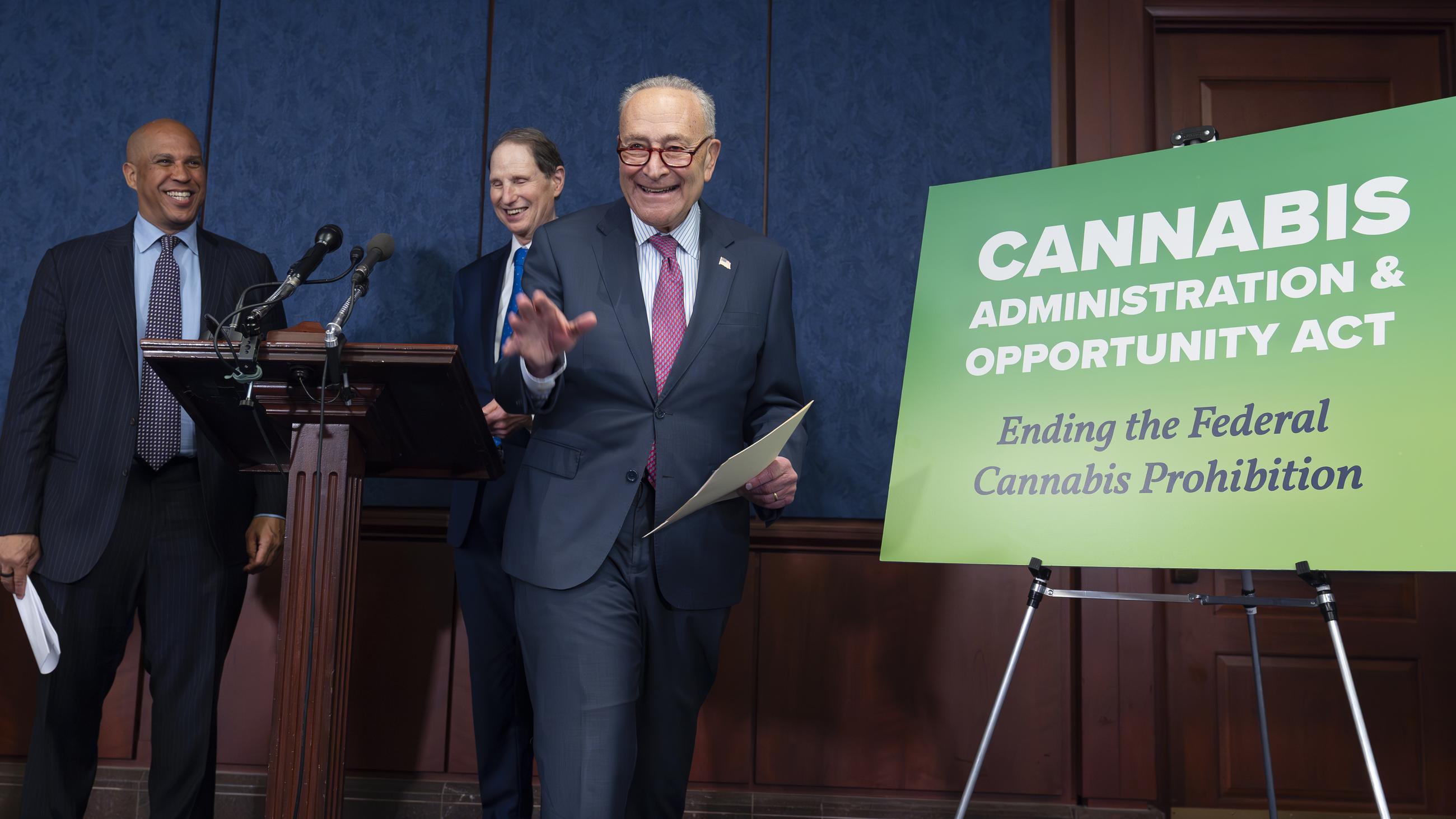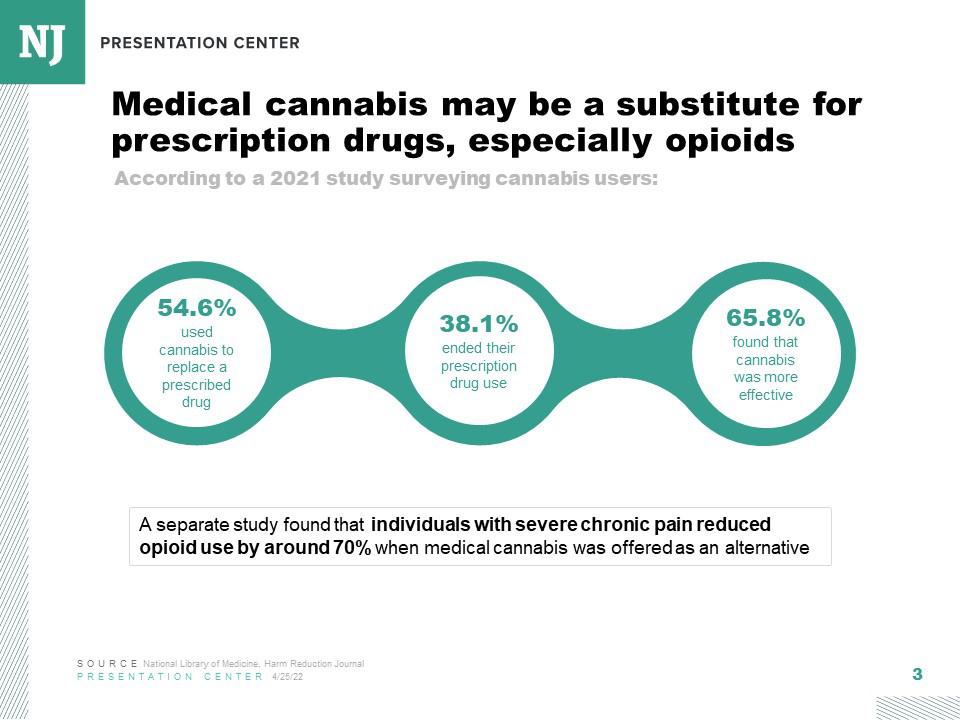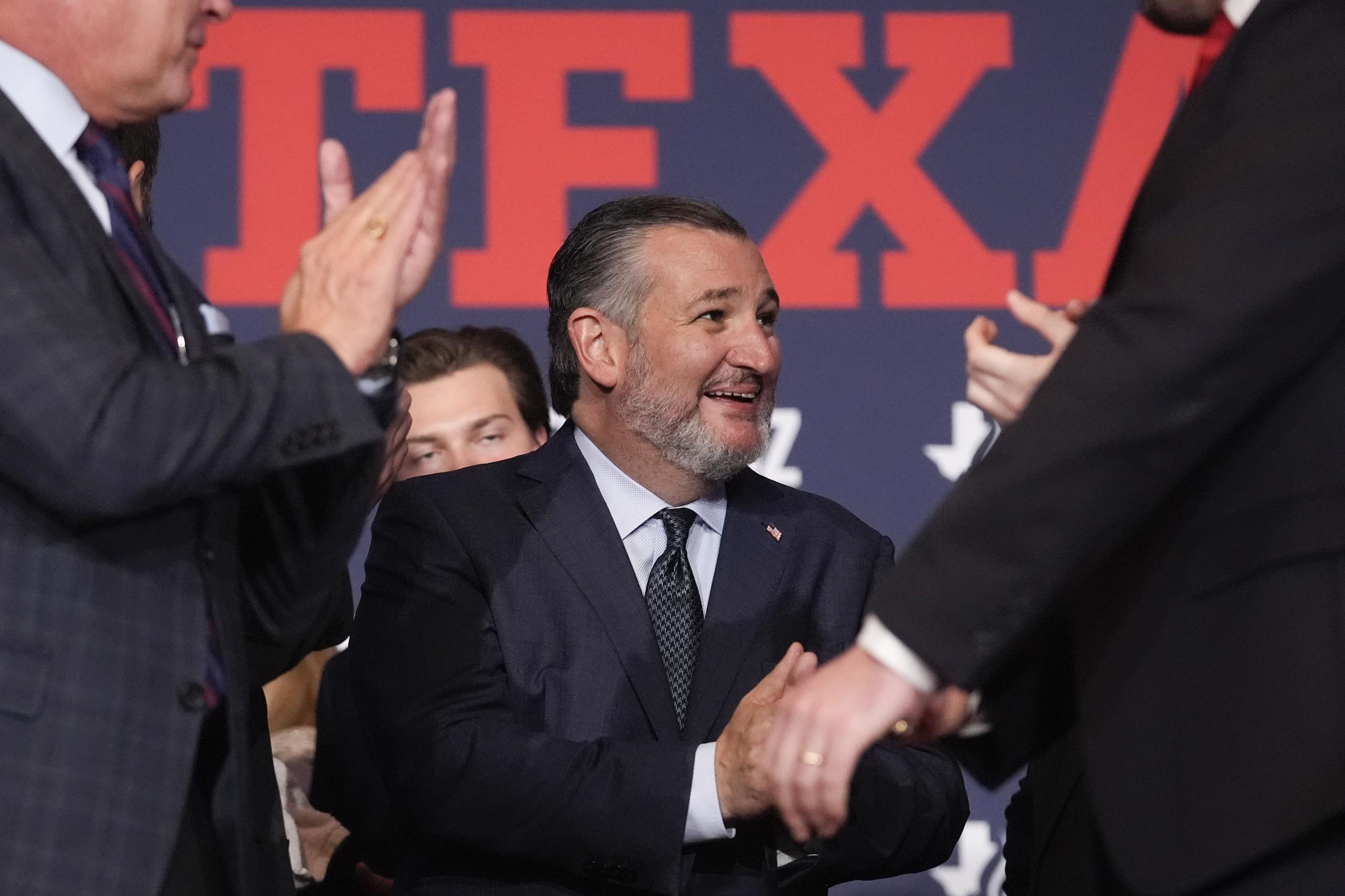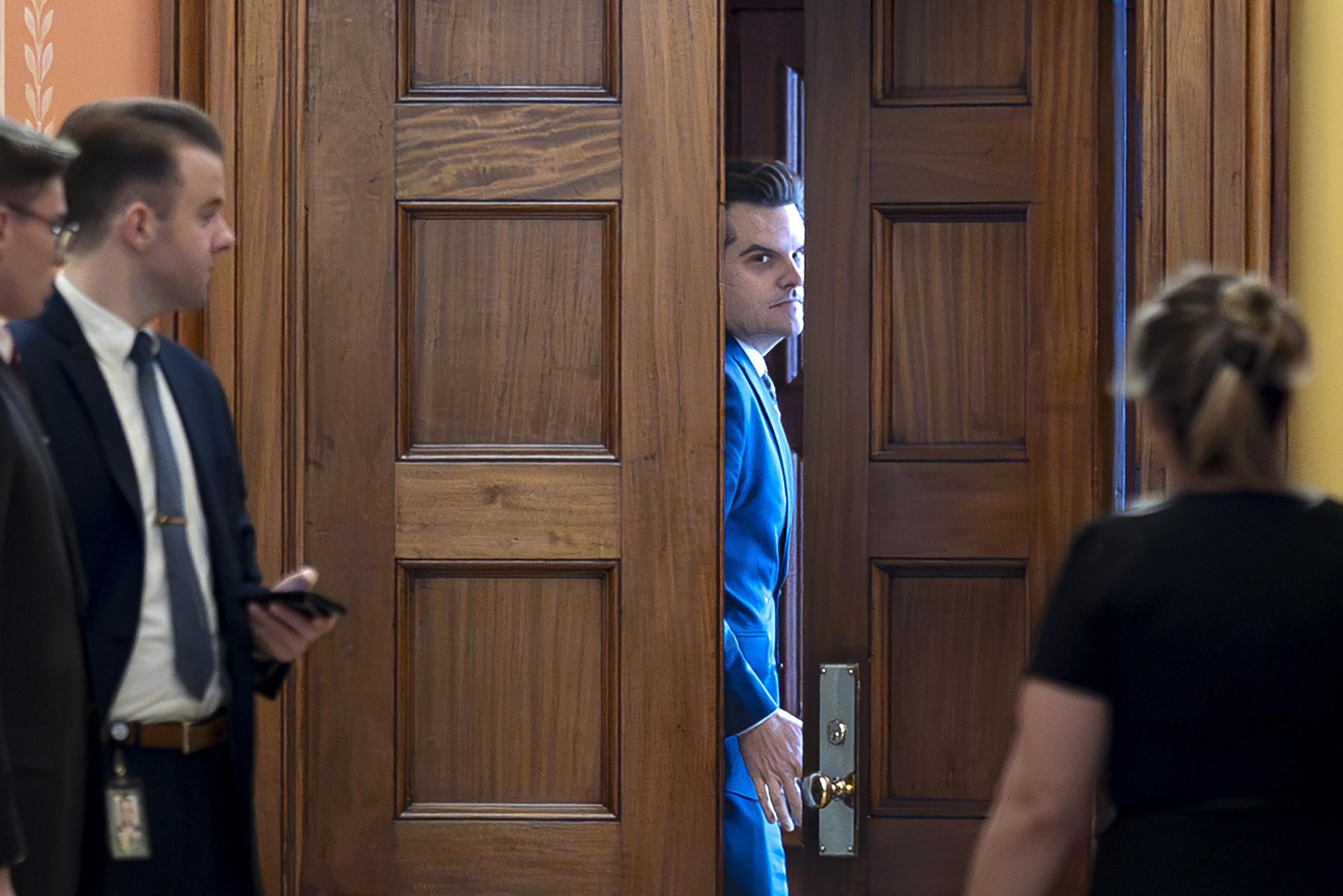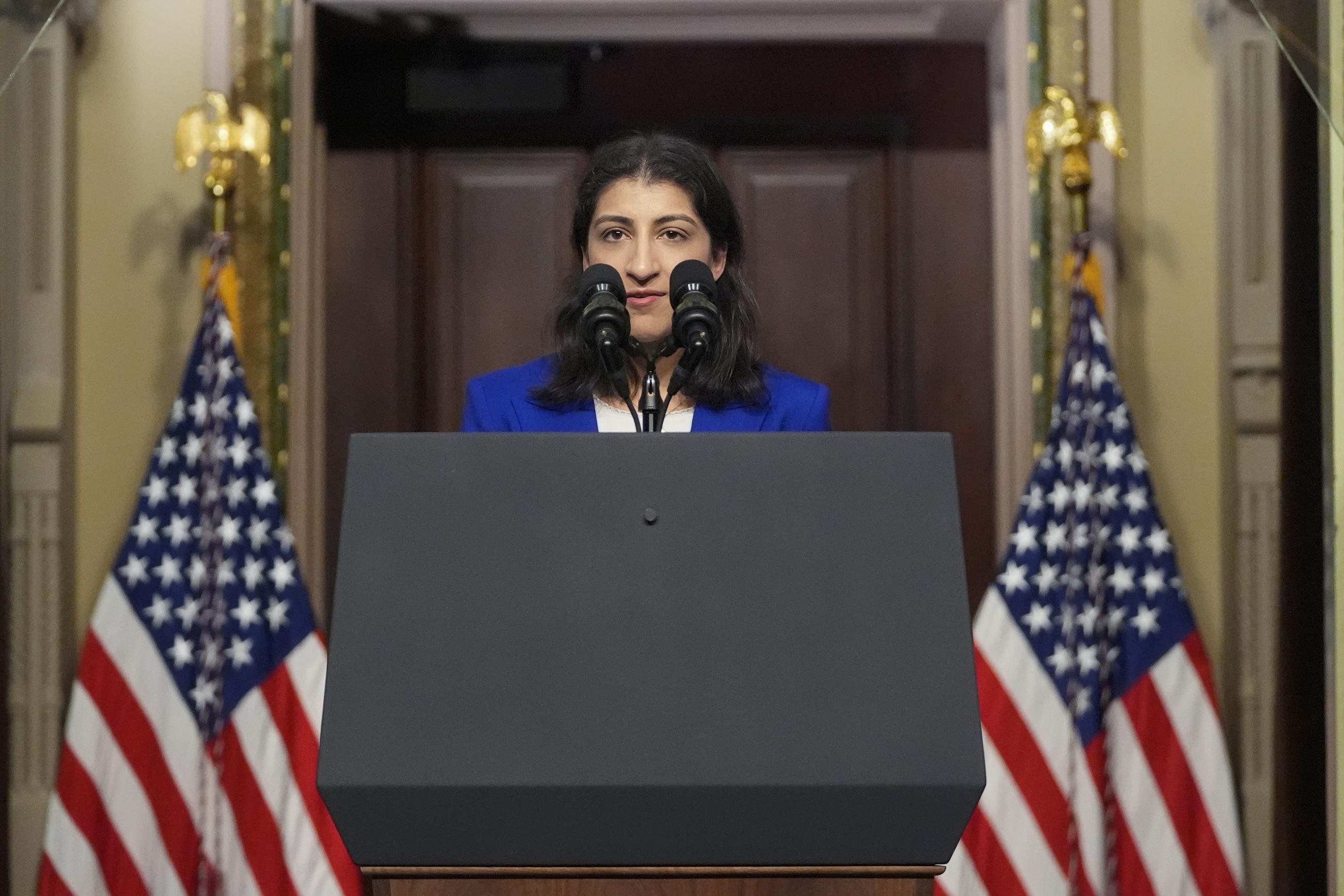Progress on federal marijuana legislation has long stalled in Congress—and a government shutdown isn’t helping.
Despite growing bipartisan support on Capitol Hill and a president who seems open to the idea of rescheduling marijuana, partisan divides and a congressional calendar full of other pressing issues have kept even modest measures from advancing.
Nevertheless, a key marijuana-banking bill may be poised for a revival—and a former senator trying to make a political comeback could be a key factor.
The SAFER Banking Act has long been touted by public officials and industry leaders as the most realistic step to regulate and protect the emerging business of marijuana. The legislation, an updated version of the SAFE Banking Act that passed the House in 2021 but stalled in the Senate, would allow federally regulated banks, credit unions, and insurers to service state-sanctioned marijuana businesses without fear of federal penalties.
Because marijuana remains federally illegal, most financial-services institutions—especially the largest banks chartered by the Federal Deposit Insurance Corporation—avoid working with marijuana-related businesses due to the risk of violating anti-money-laundering laws. The result is a riskier, cash-heavy operating environment for an industry that totaled $31.4 billion in legal sales for 2024, according to the marijuana data-research firm Whitney Economics. For comparison, sales of distilled spirits totaled $37.2 billion in 2024.
Two years ago, the legislation seemed a good bet to become law.
Then-Banking Committee Chairman Sherrod Brown had just advanced the SAFER Banking Act for a vote on the Senate floor. Cosponsored by Democratic Sen. Jeff Merkley and GOP Sen. Steve Daines, the bill enjoyed broad industry and public support. Prominent financial-services groups including the American Bankers Association said at the time that the bill’s passage would “provide that legal and regulatory clarity for banks and help facilitate access.”
Senate approval appeared in reach following then-Majority Leader Chuck Schumer’s declaration that “now is the time to get it done.” But it never got a floor vote despite bipartisan and bicameral support.
Fast forward to 2025, and pressure for Congress to act is growing.
The U.S. marijuana industry continues to expand—40 states now permit some form of marijuana use. In July, 32 attorneys general of red and blue states penned a letter urging both chambers to pass the legislation because “it is increasingly critical to move cannabis commerce into the regulated banking system.”
The bipartisan group warned about the continued risks of increased fraud and theft associated with cash-heavy businesses. They also noted that “the current lack of regular banking by lawful cannabis businesses within our jurisdictions also inhibits the states’ ability to collect taxes and conduct meaningful oversight of those businesses’ revenues.”
Nevertheless, current Senate Banking Chairman Tim Scott has not indicated that the bill is a priority. And it’s not clear it would get a vote in the House. Four years ago, the chamber passed the SAFE Banking Act with some 180 cosponsors—but without the support of Rep. Mike Johnson, who is now the speaker.
In spite of these headwinds, the political landscape could shift.
Brown, who lost his Ohio seat last year to Republican Sen. Bernie Moreno, is now running for the seat held by Sen. Jon Husted. A Brown victory would bring an influential champion of the legislation back to the chamber.
Daines’s office said the Montana Republican still supports the bill. But since Daines no longer sits on the Banking Committee, Moreno has become the chief GOP sponsor of the measure. Moreno recently acknowledged the hurdles it faces, particularly a crowded calendar of competing legislative priorities—a backlog of Trump nominees, a bill authorizing Pentagon policies, and the shutdown fight—that take precedence.
And the bill is not without its detractors.
During committee deliberations two years ago, Republican Sen. Pete Ricketts of Nebraska led the opposition, warning that the legislation would increase youth access to marijuana and set “a dangerous new precedent” by allowing banking access for an illegal enterprise.
“The SAFER Banking Act is sold as an easy banking fix. In reality, the legislation is fatally flawed and its consequences are complex and sweeping,” warned a letter signed by Ricketts with Republican Sens. John Cornyn, James Lankford, and Ted Budd. “We will remain opposed to liberalizing drug laws and will fight the SAFER Banking Act to protect our youth from dangerous policies that would result in increased promotion of marijuana use.”
When asked for a comment regarding Sen. Ricketts’s current stance, his office referred National Journal to the 2023 letter, stating that his position remains the same.
And there’s another wrinkle: Backers are waiting for President Trump to issue an executive order rescheduling marijuana, which would expand the drug’s use for medical purposes, an initiative that began under the Biden administration.
Marijuana is currently a Schedule I drug, defined as a substance “with no currently accepted medical use and a high potential for abuse,” according to the Drug Enforcement Administration. It shares this category with heroin, LSD, and peyote.
Many lawmakers, including key congressional Republicans, are urging the administration to reclassify the drug to Schedule III, where it would join codeine, ketamine, and testosterone among drugs that pose “moderate to low potential for physical and psychological dependence.”
Trump told reporters in August: “We’re looking at it. Some people like it. Some people hate it. Some people hate the whole concept of marijuana, because if it does bad for the children, it does bad for people that are older than children.”
Rescheduling is “obviously an important domino,” Moreno told reporter Matt Laslo last month. “Certainly there’s a lot of my colleagues that would have that concern [about advancing the SAFER Banking Act] if we didn’t do rescheduling. So we’ll look at it, but we have time. We have time.”
Asked by National Journal about the status of the bill, Moreno’s office provided no further comment.


